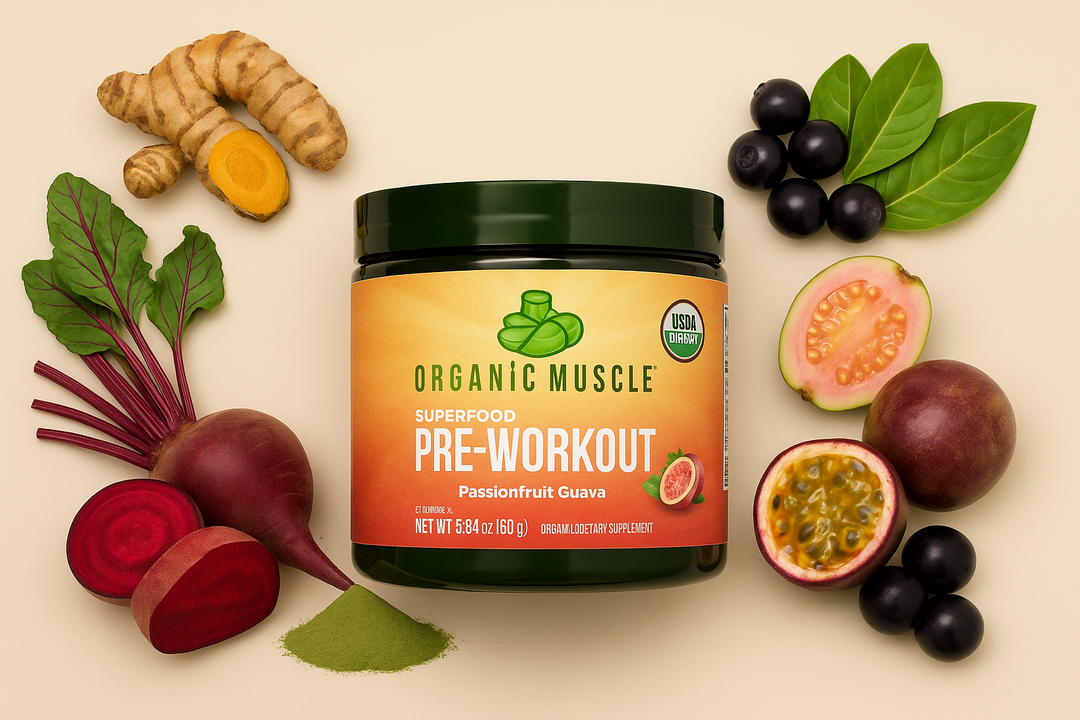Is Cancer Prevention Possible Through Diet Alone?
Cancer is a word that strikes fear into the hearts of many, but what if I told you that your diet could be a powerful weapon in preventing this dreaded disease? It might sound too good to be true, but an overwhelming body of research suggests otherwise. Let's dive into the evidence and explore how what you eat can play a pivotal role in cancer prevention. Additionally, let's examine how the cancer industry often neglects the role of nutrition and profits off the nutritional ignorance of the population.
The Power of a Clean, Organic Whole Food Diet
Imagine your body as a fortress. The stronger your fortress, the harder it is for invaders like cancer to breach your defenses. A clean, organic whole food diet can be your strongest shield. Here's why:
- The World Cancer Research Fund/American Institute for Cancer Research (WCRF/AICR) Report (2018): According to a comprehensive report by the WCRF/AICR, a staggering 30-50% of all cancer cases could be prevented through a combination of a healthy diet, regular physical activity, and maintaining a healthy weight. This finding underscores the immense potential of lifestyle choices in combating cancer.
- The American Cancer Society Guidelines (2020): The American Cancer Society (ACS) emphasizes the importance of a diet rich in fruits, vegetables, whole grains, and lean proteins. They recommend limiting processed and red meats, sugary drinks, and alcohol to reduce cancer risk. These guidelines are not just suggestions but are backed by robust scientific evidence.
Nature's Cancer Fighters
Here’s the magic: a variety of foods, both plant-based and animal-based, can help fortify your health against cancer.
- Organic Vegetables: Whether you enjoy a hearty steak or prefer a vegetarian diet, incorporating a variety of organic vegetables into your meals is crucial. Studies have shown that compounds like sulforaphane found in cruciferous vegetables (broccoli, Brussels sprouts, cabbage) can inhibit cancer cell growth and induce apoptosis (cell death) in cancer cells. This means that adding these veggies to your diet can help keep cancer at bay.
- Berries: Berries are not just delicious; they are also packed with antioxidants such as ellagic acid and anthocyanins, which help protect against cancer by reducing oxidative stress and inflammation. Including a variety of berries in your diet can offer significant protective benefits.
- Green Tea: The polyphenols in green tea, particularly epigallocatechin gallate (EGCG), have been found to have potent anti-cancer properties. Regular consumption of green tea can be a simple yet effective strategy to bolster your defenses against cancer.
- Lean Proteins: Whether you source your protein from animal products like organic, grass-fed beef and free-range poultry, or plant-based sources like beans and lentils, ensuring your protein is clean and free from harmful additives is key. Lean, organic proteins support overall health and can contribute to cancer prevention.
The Cancer Industry and Nutritional Neglect
While the evidence supporting diet's role in cancer prevention is compelling, the cancer industry often overlooks or even dismisses the significance of nutrition. This neglect is not only detrimental to public health but also raises questions about the industry's motives.
- Profit Over Prevention: The cancer treatment industry is a multi-billion dollar enterprise. With such enormous financial stakes, there is a clear incentive to focus on treatment rather than prevention. Pharmaceutical companies and treatment facilities stand to profit immensely from ongoing treatments, such as chemotherapy, radiation, and surgery. This profit-driven model can lead to a neglect of preventative measures, including nutrition.
- Lack of Nutritional Education: Many medical professionals receive minimal training in nutrition during their education. A study published in Academic Medicine found that less than 20% of medical schools in the United States offer a dedicated nutrition course. This lack of training translates to a healthcare system where nutrition is often not prioritized in patient care, including cancer prevention and treatment plans.
- Marketing of Processed Foods: The food industry, which often collaborates with the pharmaceutical industry, heavily markets processed foods that are linked to increased cancer risk. These foods are high in sugars, unhealthy fats, and additives, contributing to poor public health. The cycle of poor nutrition leading to disease, which then requires treatment, is financially beneficial to both the food and pharmaceutical industries.
Empowering Through Knowledge
Understanding the powerful role of nutrition in cancer prevention is the first step in breaking this cycle. By making informed dietary choices, individuals can take control of their health and reduce their cancer risk.
- Adopting a Clean, Organic Whole Food Diet: Emphasize whole, unprocessed foods such as fruits, vegetables, whole grains, nuts, and seeds. These foods are rich in vitamins, minerals, antioxidants, and fiber, all of which contribute to overall health and cancer prevention.
- Choosing Organic and Grass-Fed Animal Products: If you consume animal products, opt for organic, grass-fed, and free-range options. These products are free from harmful hormones and antibiotics that can contribute to health issues, including cancer.
- Limiting Processed Foods and Sugary Drinks: High sugar intake is linked to obesity, which is a risk factor for several types of cancer. Processed foods often contain harmful additives and preservatives that can increase cancer risk. Reducing consumption of these foods can lower your overall risk.
- Avoiding Alcohol and Smoking: Alcohol is a known carcinogen, and limiting its consumption can reduce the risk of cancers such as breast, liver, and esophageal cancer. Similarly, avoiding smoking is crucial for cancer prevention.
- Regular Physical Activity: Exercise not only helps maintain a healthy weight but also has direct anti-cancer effects. It can improve immune function, reduce inflammation, and regulate hormones related to cancer growth.
The Benefits of a Plant-Based Diet
For those who prefer a plant-based diet, the benefits are equally compelling.
Plant-Based Power:- Rich in Antioxidants: Plant-based foods are typically high in antioxidants, which combat oxidative stress and inflammation, both of which are linked to cancer development.
- Fiber-Rich: A plant-based diet is naturally high in fiber, which aids in digestion and can help reduce the risk of colorectal cancer.
- Low in Harmful Fats: Plant-based diets are generally lower in saturated fats, which are associated with increased cancer risk.
By embracing a diet rich in these and other nutritious foods, and by staying informed about the tactics of the cancer industry, individuals can harness the power of nature to protect themselves from cancer. It's not just about eating less junk food; it's about nourishing your body with the right kinds of foods that have been proven to fight cancer and standing up against an industry that often prioritizes profits over prevention.
Sources:
- WCRF/AICR Report, 2018: Diet, Nutrition, Physical Activity and Cancer: a Global Perspective
- American Cancer Society Guidelines, 2020: Nutrition and Physical Activity Guidelines for Cancer Prevention
- American Cancer Society: Diet and Physical Activity: What’s the Cancer Connection?
- PubMed: Sulforaphane-induced cell cycle arrest and apoptosis in human breast cancer cells
- PubMed: Chemoprevention of cancer by isothiocyanates, modifiers of carcinogen metabolism
- PubMed: Berries and cancer prevention: a review of the mechanistic studies on the basis of their antioxidant, anti-inflammatory, and anti-carcinogenic properties
- PubMed: Green tea and cancer prevention
- Academic Medicine: Nutrition Education in Medical Schools
- International Agency for Research on Cancer: IARC Monographs evaluate consumption of red meat and processed meat












